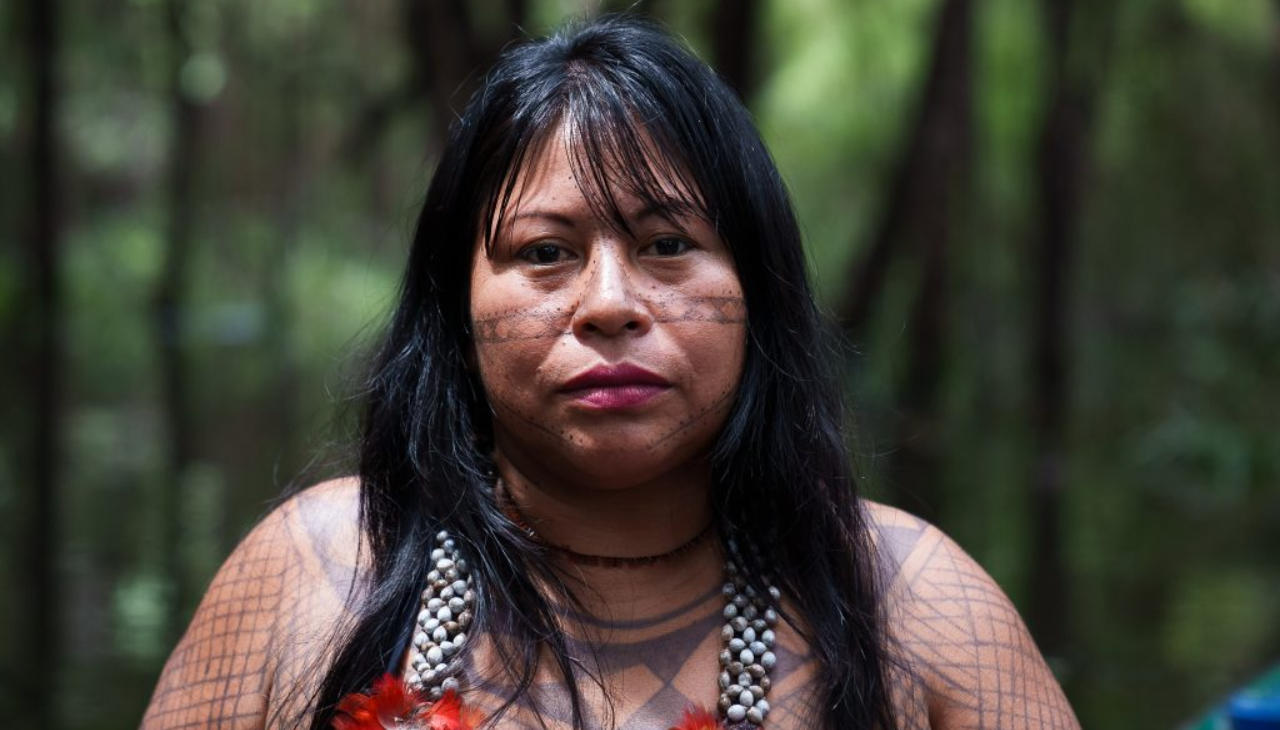
Munduruku woman wins 2023 Goldman Environmental Prize
Alessandra Korap Munduruku, one of six recipients, won for her work in stopping a British mining company’s developments in the Amazon rainforest.
Alessandra Korap Munduruku, an indigenous woman from Brazil, has won the 2023 Goldman Environmental Prize for Central and South America. This is due to her community organizing work that stopped development efforts of Anglo American, a British mining company, on the Sawré Muybu Indigenous Territory.
The prize “recognizes grassroots environmental heroes from roughly the world’s six inhabited continental regions: Africa, Asia, Europe, Island & Island Nations, North America, and South & Central America.”
Korap Munduruku is the president of the Pariri Indigenous Association, an organization that supports the communities in the Tapajós River region in Brazil. She became the first woman coordinator of the group after facing resistance to her getting involved. She studied law in 2018 to represent and protect her communities better.
“This award is an opportunity to draw attention to the demarcation of the Sawre Muybu territory. It is our top priority, along with the expulsion of illegal miners,” Korap Munduruku told The Associated Press.
There are 14,000 Munduruku people in the Para and Mato Grosso states of Brazil, who live along the Tapajós River Basin. The Sawre Muybu territory includes 400,000 acres of Amazon rainforest, but is not formally recognized by the Brazilian government.
The Munduruku put up signs at their territories’ boundaries to self-demarcate, used drones to film illegal mining, and tracked deforestation.
Initially, Anglo American responded to a letter from Korap Munduruku that demanded it withdraw its permits by denying it intended to mine in Munduruku territory.
“They are liars. Don’t try to trick us because we will investigate. We will search for information,” Korap Munduruku said in an interview with The Goldman Prize.
Following more pressure from the community, the company withdrew the 27 approved research applications it had to mine in Indigenous territory.
RELATED CONTENT
After Anglo American withdrew from Indigenous territory, Vale, another mining company, followed suit. In 2022, none of the 130 companies that are a part of the Brazilian Mining Association (Ibram) had applications to mine in these territories.
The other award recipients are:
Dilemma Silalahi (Indonesia/Island & Island Nations): She secured legal stewardship for 17,824 acres of forest for six Indigenous groups in North Sumatra. These communities have traditionally harvested Sumatran benzoin resin from the trees to sell. The amount they had to harvest was diminishing as Toba Pulp Lestari (TPL), a pulp and paper company, cut down trees to create a eucalyptus plantation.
Chilekwa Mumba (Zambia/Africa): He won a lawsuit against Vedanta Resources in UK court for the pollution the Konkola Mines caused in the Copperbelt Province of Zambia. This set legal precedent because it was the first time a UK company had been found liable for its subsidiary’s environmental damage in another country.
Zafer Kizilkaya (Turkey/Asia): He expanded Turkey’s marine protected areas (MPAs) along 310 miles of the country’s Mediterranean coast. The MPA includes 135 square miles of no trawling/purse seine and 27 square miles of no fishing zones.
Diane Wilson (United States/North America): She won a $50 million lawsuit against Formosa Plastics, which is the largest citizen suit against an industrial polluter in US Clean Water Act history. The suit concerned the company’s illegal dumping of plastic waste along Texas’ Gulf Coast.
Tero Mustonen (Finland/Europe): He bought and restored 62 peatlands that total 86,000 acres. These areas had been used for peat mining and forestry. Peatlands are very effective in storing carbon, but release it when used for peat mining.











LEAVE A COMMENT: